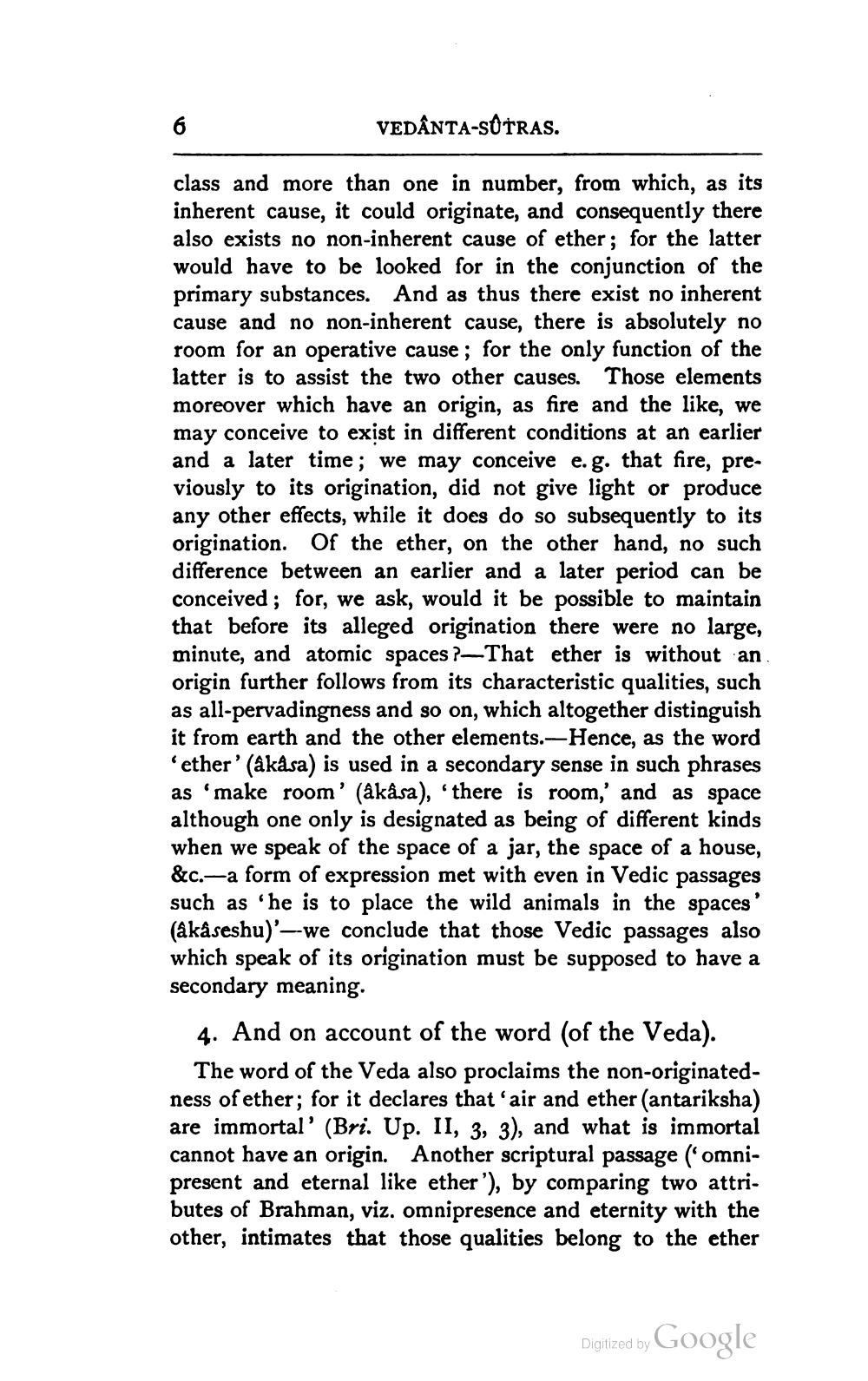________________
VEDANTA-SUTRAS.
class and more than one in number, from which, as its inherent cause, it could originate, and consequently there also exists no non-inherent cause of ether; for the latter would have to be looked for in the conjunction of the primary substances. And as thus there exist no inherent cause and no non-inherent cause, there is absolutely no room for an operative cause; for the only function of the latter is to assist the two other causes. Those elements moreover which have an origin, as fire and the like, we may conceive to exist in different conditions at an earlier and a later time; we may conceive e. g. that fire, previously to its origination, did not give light or produce any other effects, while it does do so subsequently to its origination. Of the ether, on the other hand, no such difference between an earlier and a later period can be conceived; for, we ask, would it be possible to maintain that before its alleged origination there were no large, minute, and atomic spaces ?-That ether is without an origin further follows from its characteristic qualities, such as all-pervadingness and so on, which altogether distinguish it from earth and the other elements.-Hence, as the word 'ether' (âkâsa) is used in a secondary sense in such phrases as 'make room' (âkâsa), 'there is room,' and as space although one only is designated as being of different kinds when we speak of the space of a jar, the space of a house, &c.—a form of expression met with even in Vedic passages such as 'he is to place the wild animals in the spaces' (âkâseshu)'--we conclude that those Vedic passages also which speak of its origination must be supposed to have a secondary meaning.
4. And on account of the word (of the Veda).
The word of the Veda also proclaims the non-originatedness of ether; for it declares that 'air and ether (antariksha) are immortal' (Bri. Up. II, 3, 3), and what is immortal cannot have an origin. Another scriptural passage ('omnipresent and eternal like ether '), by comparing two attributes of Brahman, viz. omnipresence and eternity with the other, intimates that those qualities belong to the ether
Digitized by
Google




